More information is produced now than ever before. But are there sufficient abilities to make use of all this knowledge?
The current system is stalling
As part of Sitra’s Knowledge in decision-making project we wanted to determine where the worst bottlenecks in interaction between knowledge and societal decision-making are, and to identify the key targets for development.
Interaction between knowledge and decision-making is characterised by many disappointments and a frustrated atmosphere.
The results of a survey conducted early in the summer of 2017 paint a worrying picture: respondents saw the interaction between knowledge and decision-making in Finland to be characterised by many disappointments and a frustrated atmosphere. The situation was seen in this light by all groups responding to the survey: decision-makers, administrators, researchers, financiers, media representatives and other service providers.
Respondents listed factors such as haste, the one-sided use of information and the overwhelming amount of competing knowledge as reasons for the friction between knowledge and decision-making.
Desire for development exists – why is nothing happening?
“Traditional ways of producing sector-based knowledge and passing it on directly to decision-making do not work well in an interdependent world,” says Eeva Hellström, a leading specialist at Sitra.
Many respondents to our survey offered proposals for improving the interaction between knowledge and decision-making. When seeking answers to complex societal challenges, respondents hoped for: the more versatile use of different types of knowledge and expertise; a more systematic compilation of knowledge from diverse sources; an increase in the use of a long-term perspective in decision-making, which transcends individual governments’ terms in office; and an increase in dialogue among different players.
Individual new practices alone are not enough.
When developing the use of knowledge in decision-making it is nevertheless necessary to go beyond individual new practices.
“The situation is made more difficult especially by today’s way of thinking that is based on the linear knowledge production – knowledge dissemination – decision-making approach. In a complicated world, even good knowledge does not necessarily lead to good decisions, and good decisions alone will not be enough to bring about changes,” Hellström adds.
In addition to digital progress we need greater dialogue
If Finland is to be successful in the future, we need a change that will reshape our concept of knowledge and make it more comprehensive. It can only happen through societal dialogue and personal awareness.
We need a change that reshapes our entire concept of knowledge and increases its versatility.
“The roles and expectations of different players as part of decision-making should be understood better. To achieve this, we need greater dialogue: a profound change in our operating culture, centred on the understanding that making sense of the complexity of knowledge takes place through interaction,” says Hannu-Pekka Ikäheimo, a specialist in Sitra’s foresight and insight team.
It is gratifying that there are calls for developing the interaction practices between knowledge and decision-making from all sectors. The will to improve the situation does exist.
***
To open the societal discussion on the new approaches needed in knowledge and decision-making, we have put forward our Knowledge in Decision-Making in Finland – Towards Greater Dialogue working paper.
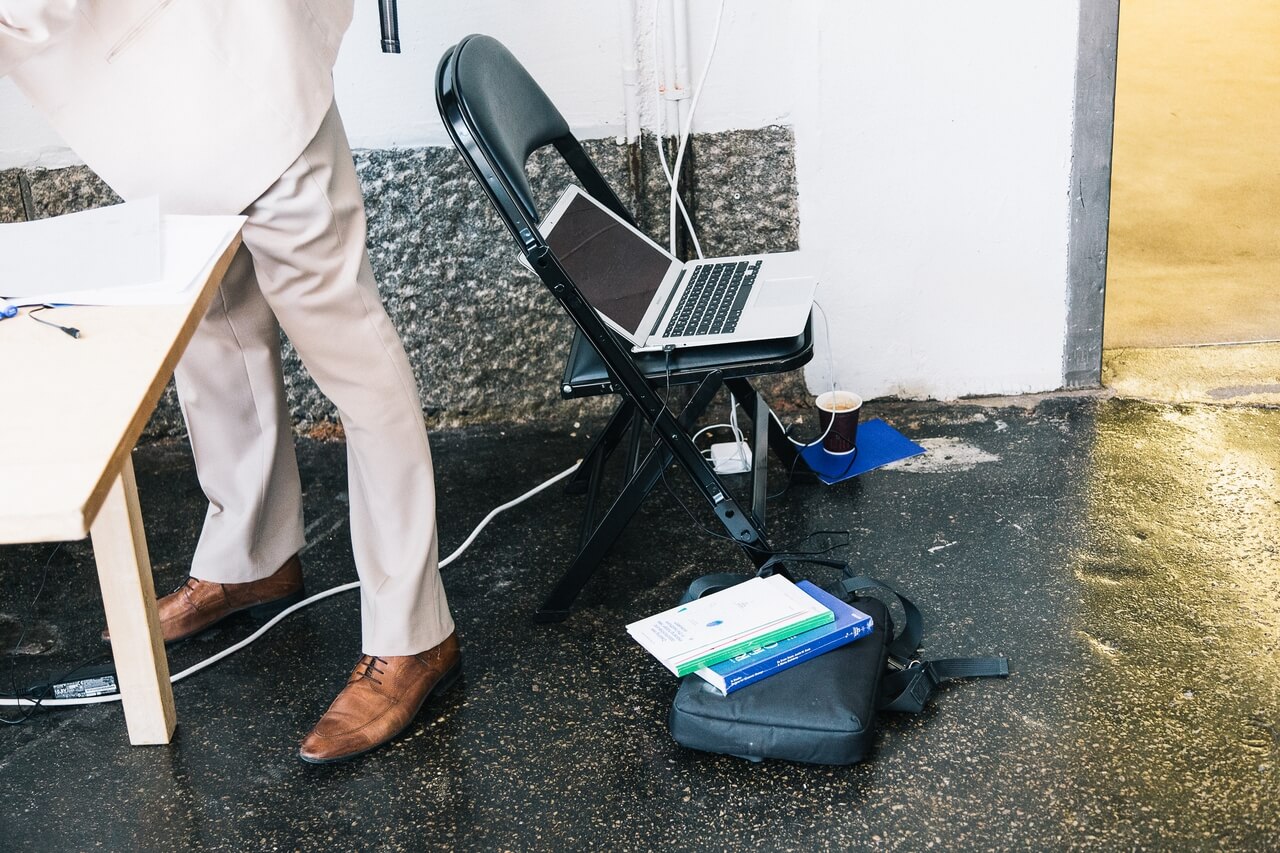



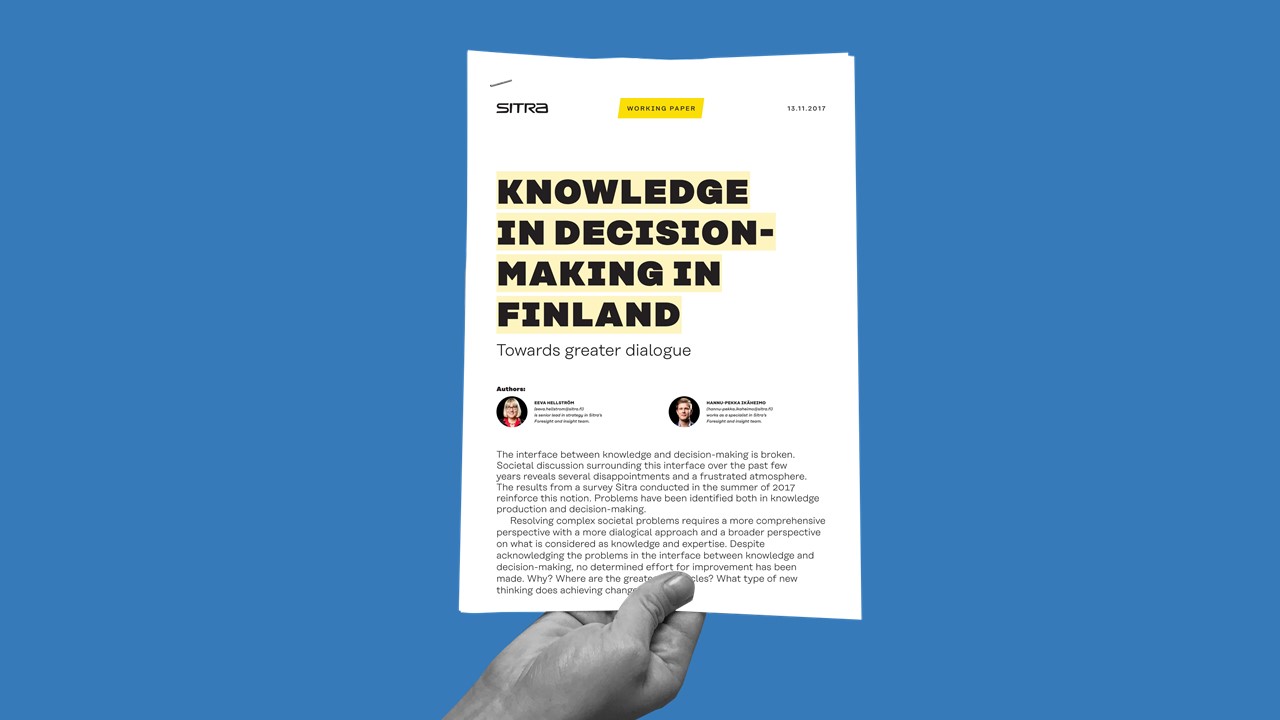
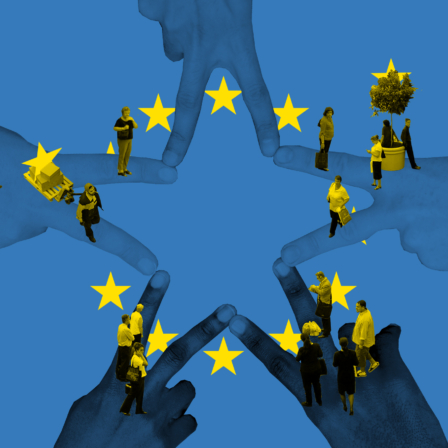





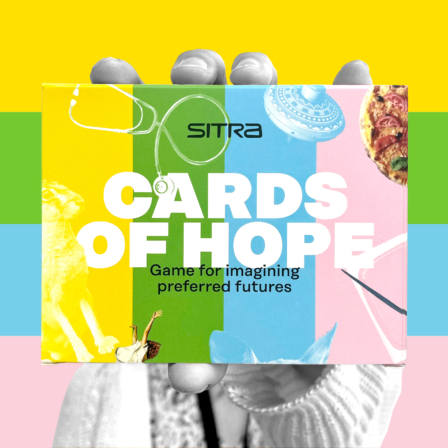
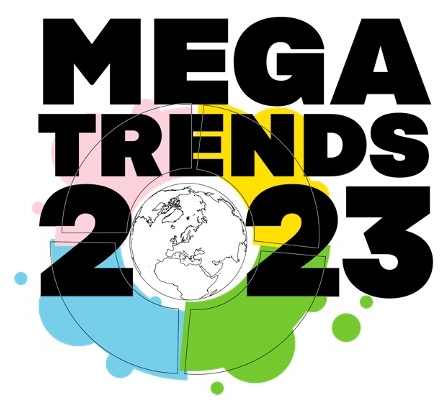
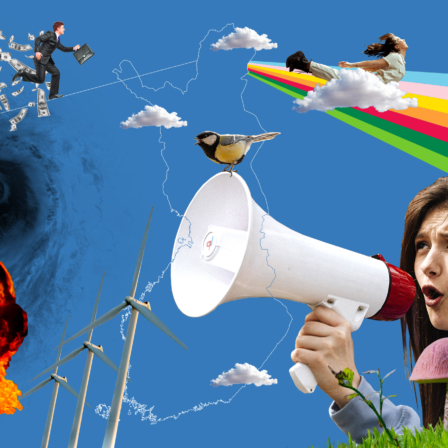
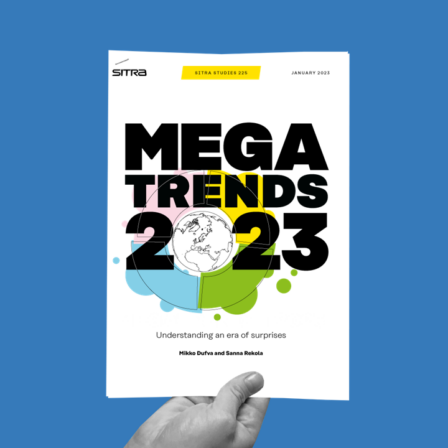

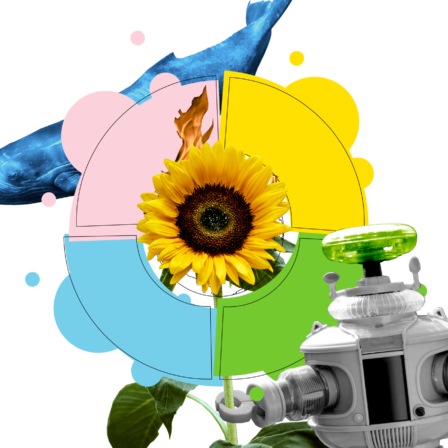
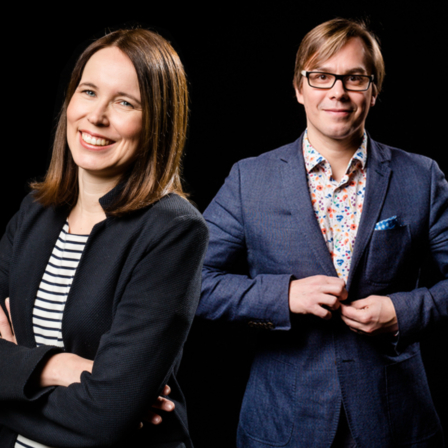
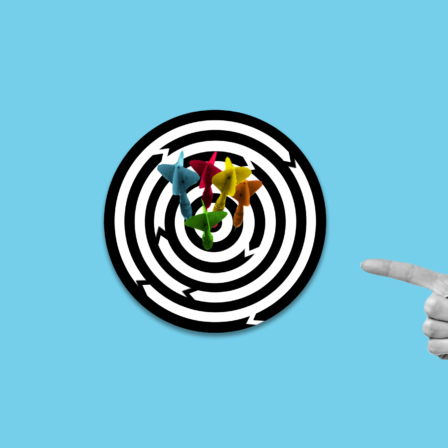

Results of our study
Dig in deeper.